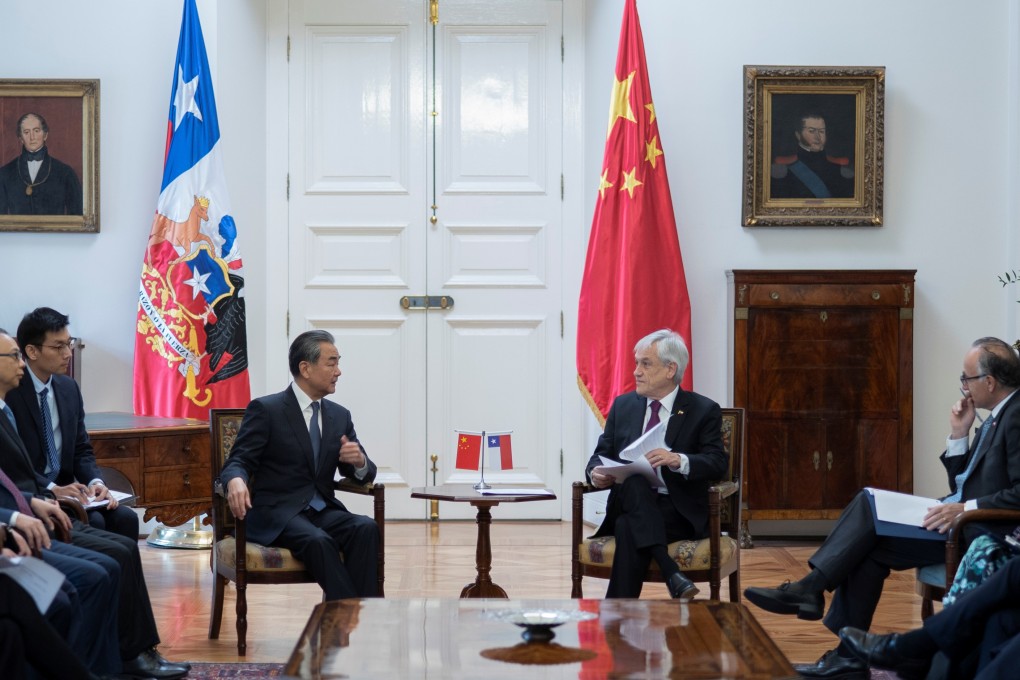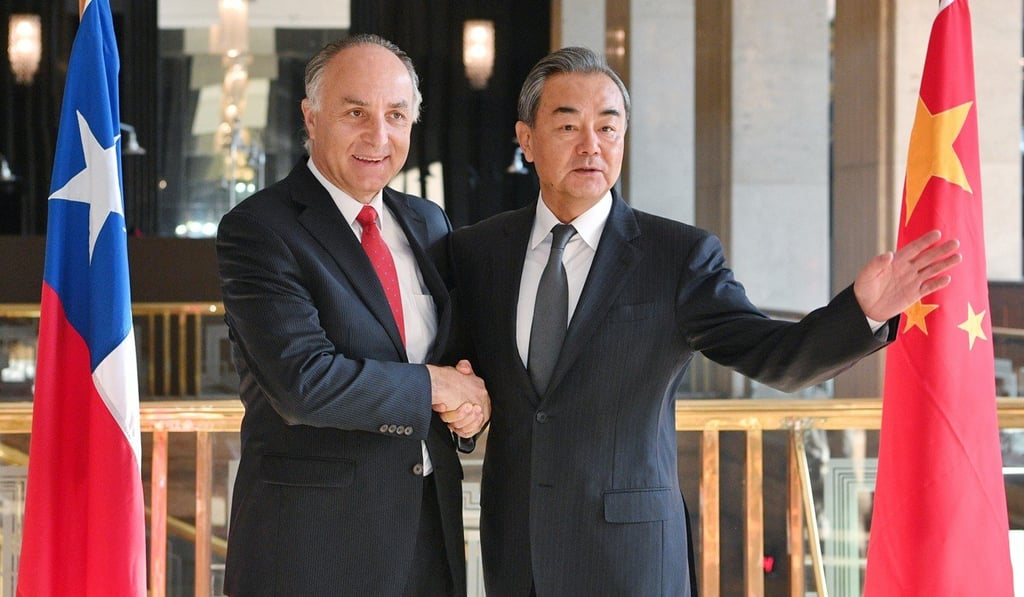Chinese Foreign Minister Wang Yi says US pressure on China ‘is untenable’
- During official visit to Chile, Wang also rebuffs claims China is setting debt traps in Latin America, saying they are ‘full of prejudice’
- He praises Chile’s ‘fair and open telecommunications market’ as well as Huawei and other Chinese tech firms for their work there

Wang joined a growing number of high-level Chinese officials who have warned of “US pressure” and the protracted dispute between the two powers.
In an interview with Chilean newspaper El Mercurio on Sunday, Wang focused on China’s continuing conflict with the United States over issues ranging from trade and technology to geopolitical disagreements including the crisis in Venezuela.
“[Washington’s] no-holds-barred use of pressure on China is untenable,” said Wang, adding that while Beijing was sincere about continuing the trade talks, discussions between the two countries must be “fair and equal”. He also warned that “China must safeguard its own core interests on issues of China’s sovereignty and dignity”.
Wang praised Chile’s openness to China’s 5G technology – a globally sensitive issue that is also at the heart of the trade war with America.
